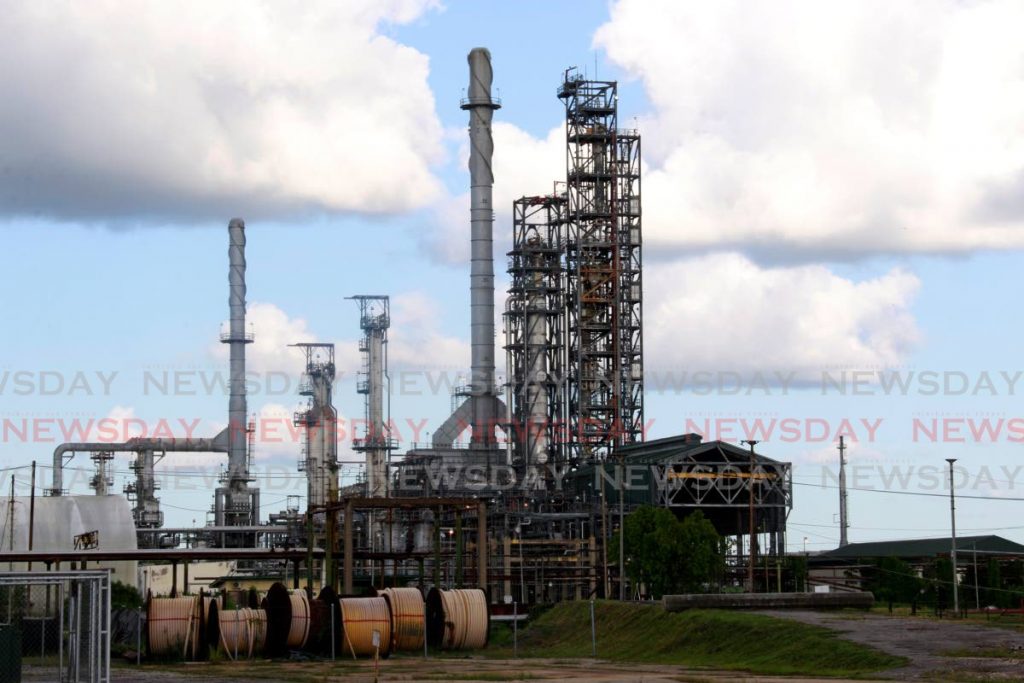Was Patrotic’s refinery deal ever going to work?

Kiran Mathur-Mohammed
The Government has said that after two years of negotiation, the Oilfield Workers Trade Union and its affiliates have not been able to produce a credible offer to restart and operate state-owned oil company Petrotrin’s mothballed refinery.
A clue to the reason why lies in the word “credible.” In order to restart the refinery, the union needed cash, and plenty of it. Even though the terms initially agreed to by the Government deferred payments of the bulk of the cash offered, our Jurassic refinery would still require hundreds of millions of US dollars to be brought up to early 20th-century standards.
The reality is that any trade union at all would seriously struggle to raise capital from private investors or banks, whether local or international. Far less our local trade unions, which operate in an environment that ranks 140 out of 140 countries for co-operation in labour-employer relations, according to the World Bank.
If you were an investor or lender, consider this lovely deal: ancient legacy assets, huge upfront capital injections, a volatile price environment, a relatively high cost jurisdiction, yes; but most importantly, uncertain management know-how and character and considerable political and environmental downside risks. Oh, let’s also throw in a relatively illiquid asset (difficult to sell), medium-term environmental hazards and international regulatory and other trends that aren’t exactly favourable to fossil fuels.
Why bother, when there are cheaper and more attractive assets in other jurisdictions with less headlines and headaches?
That’s not to say that a frisky high-yield investor or a player like Trafigura would never take the risk on the union (as it seems it has), but it does rule out most of the usual stolid institutional players in emerging market debt and private equity. There was always going to be a price.
Not just a Trafigura but anyone financing the union deal would inevitably have demanded the equivalent potential upside returns and charged a huge cost of capital – whether directly or indirectly (as it seems was the case) in the form of huge tax breaks – and that’s even in the highly questionable event that any deal could be completed at all.
The Government has folks inside who have done international capital markets deals before and are at least sophisticated enough to have recognised this. So they knew from the beginning that the union was unlikely ever to raise the capital to credibly restart the refinery under the right terms. Why did they originally take the union’s deal over the other bidders, only to renege on it now?
The political operatives among us might come to the following conclusion: the Government knew the trade union could never raise the cash without eventually (even if not initially) demanding unreasonably rich terms to please demanding financiers, but it also knew that it needed, if not union support, then at least not active union opposition before the August general election.
Knowing this, it reasoned that the best way forward, without completely giving away the asset to an entity which was unlikely to be able to restart it profitably (possibly leading to a second crisis) was to accept the offer, but call the union’s bluff by making it conditional on it proving the means and capacity to restart the refinery.
Of course, the Government could not call the bluff too soon – doing so before the election could result in a nasty public fight. The best approach would be to keep the process chugging along until after the election, when challenging the union would be less politically costly.
Anyone with the gift of the gab and some familiarity with Powerpoint and Excel can do up a term sheet, but only a few players have the ability to execute a serious project like this. On paper, the union originally made the biggest offer. But where was the cash going to come from, and under what terms?
So back to the negotiation table. Who knows? Maybe the union can find serious international management and credible institutional financial backing under reasonable terms, in which case we should all support them to get the deal done in time for Christmas lunch.
Until then, the Government is likely to return to one of the other bidders on its shortlist – particularly international energy firms Beowulf or Klestch. Beowulf originally offered the Government a decent deal, but all that was pre-covid19. We’ll have to see whether those offers still hold.
As for the thousands of unemployed – the enterprising among them are not waiting for announcement by any oil investor, but are slowly, then quickly, turning to entrepreneurship. How can they do otherwise, when the alternative is empty fridges and despair?
Kiran Mathur Mohammed is a social entrepreneur, economist and businessman. He is a former banker, and a graduate of the University of Edinburgh.


Comments
"Was Patrotic’s refinery deal ever going to work?"